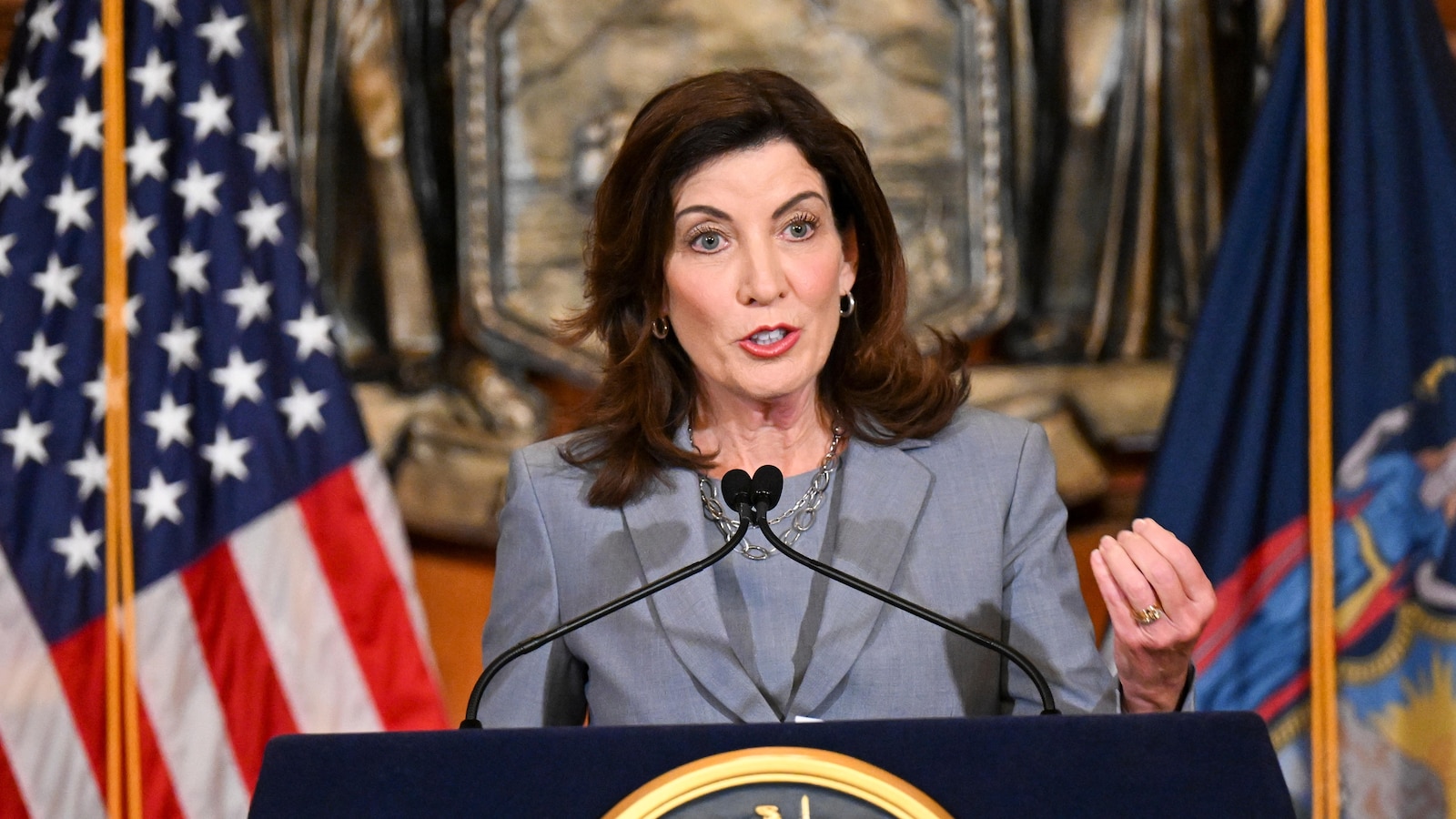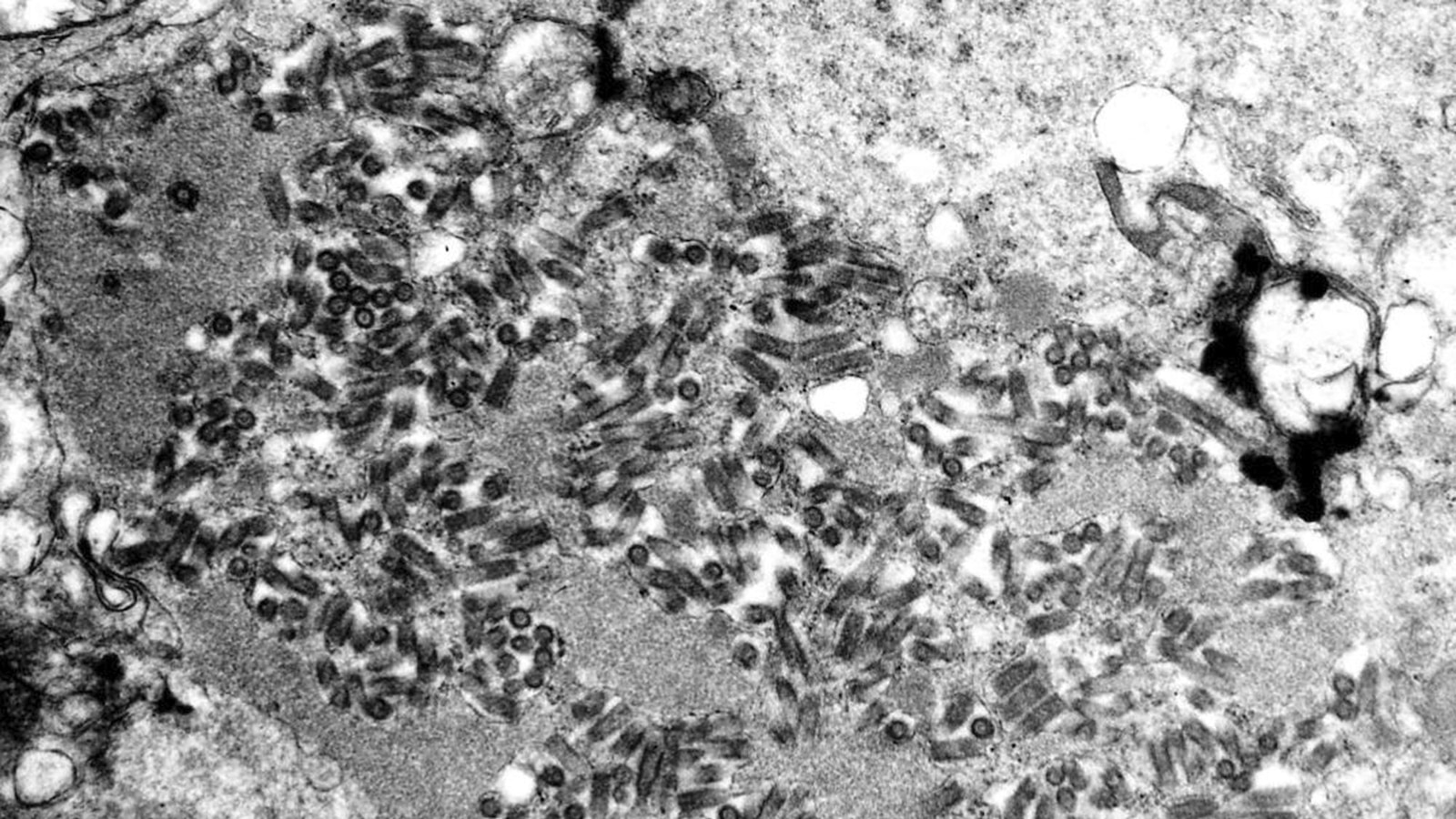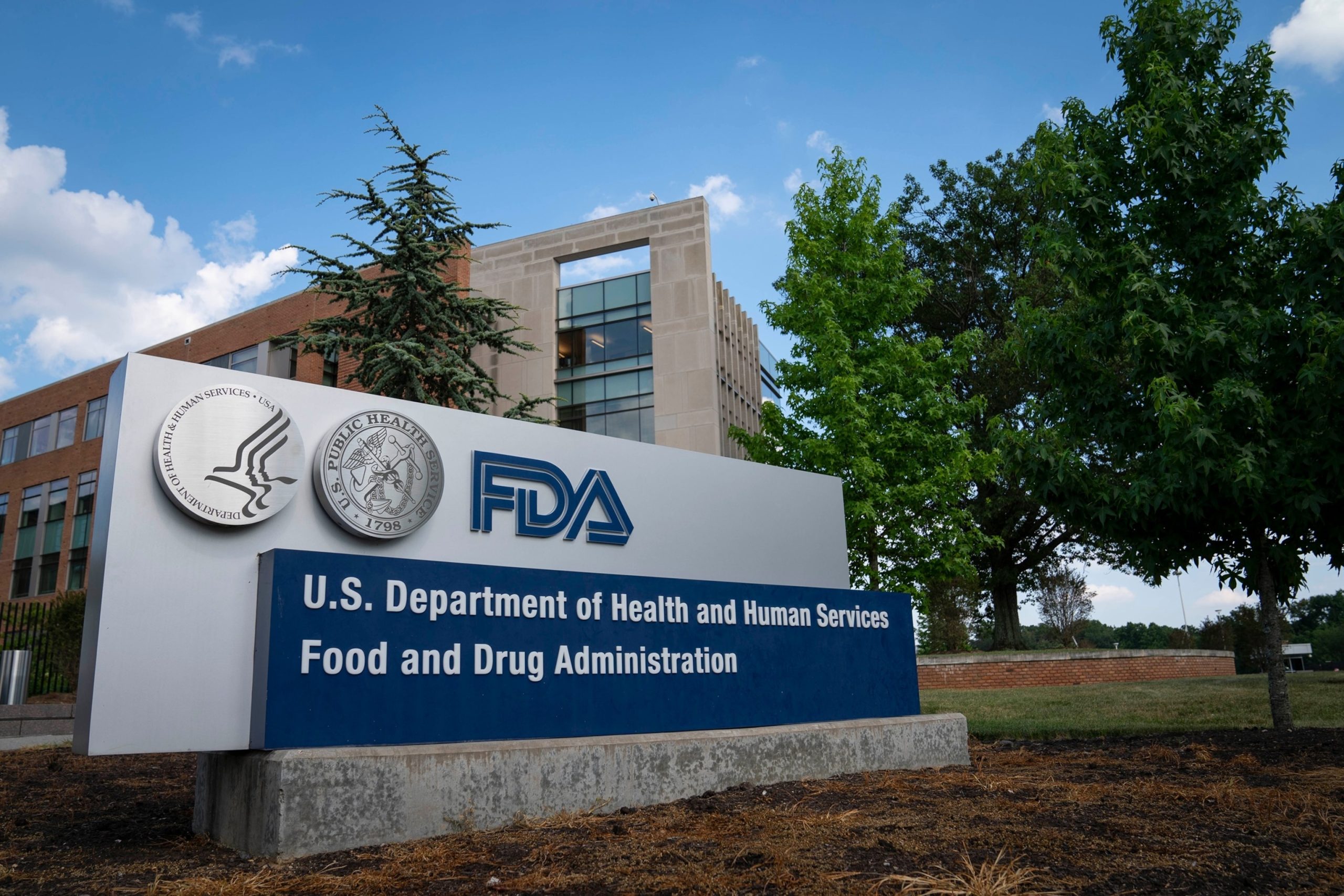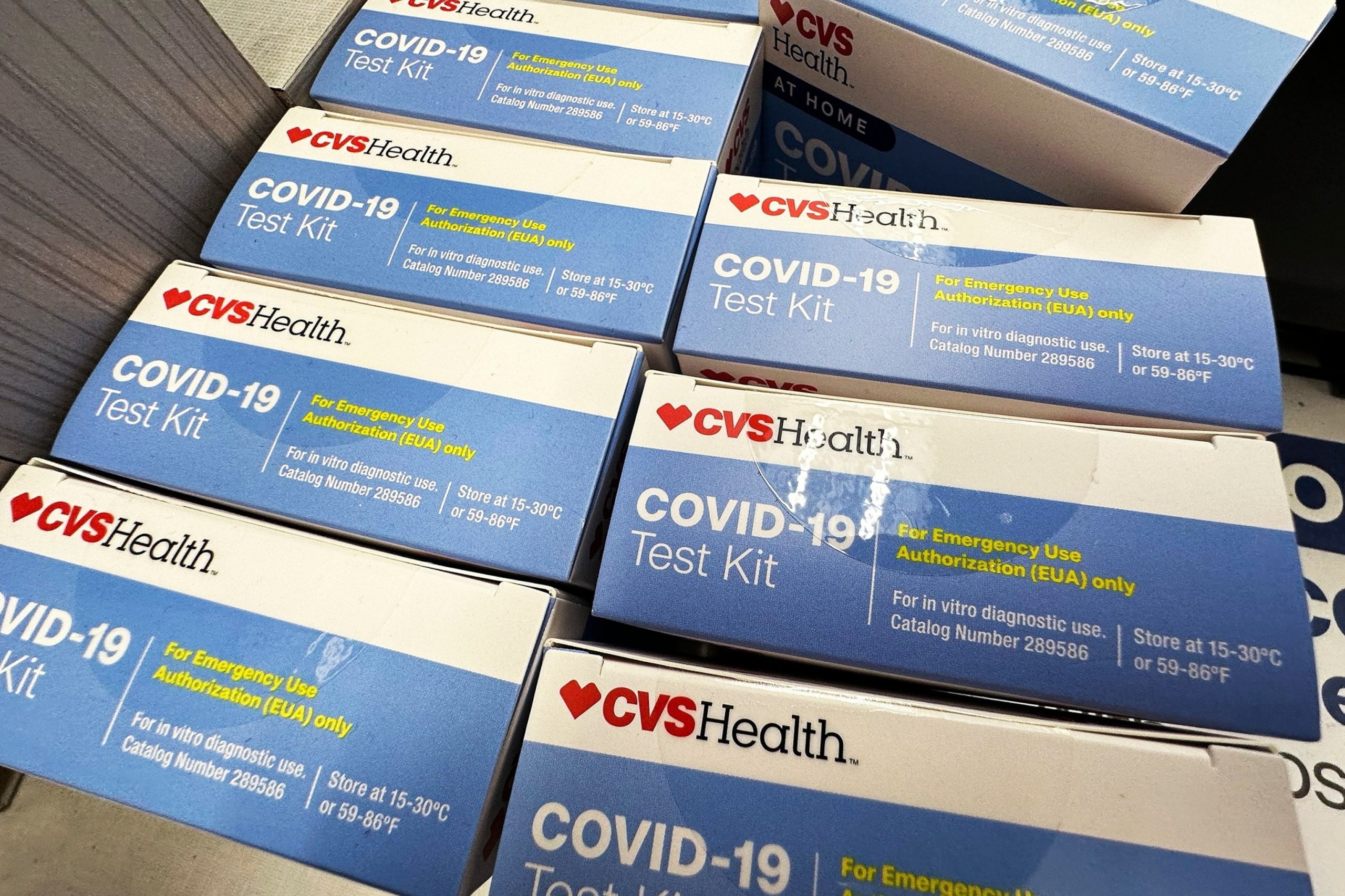
ALBANY, N.Y. — Gov. Kathy Hochul said Thursday that she is considering a ban on face masks in the New York City subway system due to concerns about people shielding their identities while committing antisemitic acts.
Hochul, a Democrat, told reporters the exact details of the policy are not clear but it would contain “common-sense exemptions” for health, cultural or religious reasons. Many people concerned about COVID-19 and air pollution routinely wear masks on the subway.
Hochul said she was in talks with lawmakers on potentially crafting a bill.
At at news conference in Albany, the governor said she was moved to act after “a group donning masks took over a subway car, scaring riders and chanting things about Hitler and wiping out Jews” on Monday night.
It was not clear exactly what incident she was referring to, but it could have been a conflation of different episodes related to pro-Palestinian demonstrations that day in Union Square Park.
Hundreds of people leaving the rally flooded into a subway station, some waving flags and banging on drums, to get on trains headed downtown. On one train, a man who was not wearing a mask led a small group in chanting “Raise your hands if you’re a Zionist” to other passengers, followed by, “This is your chance to get out.”
Meanwhile video circulating on social media showed a confrontation that purportedly happened earlier in the day, when a man in Union Square — who also was not wearing a mask — was recorded shouting, “I wish Hitler was still here. He would’ve wiped all you out.”
It was unclear whether he was involved in the protest or whom he was shouting at. A group of people waving Israeli flags was also in the park at the time.
“We will not tolerate individuals using masks to evade responsibility for criminal or threatening behavior,” Hochul said. “My team is working on a solution, but on a subway, people should not be able to hide behind a mask to commit crimes.”
New York passed a law banning face masks in public in the 1800s as a response to protests over rent. It was suspended in 2020 by then-Gov. Andrew Cuomo as part of a pandemic public health campaign, and masks were also made mandatory for subway riders until September 2022.
The mask ban previously had drawn criticism from civil rights groups that argued it was selectively enforced to break up protests where people wanted to hide their identities to avoid legal or professional repercussions.
“The Governor’s concerns about masks disguising criminal activity won’t be quelled by banning anonymous peaceful protest. Mask bans were originally developed to squash political protests and, like other laws that criminalize people, they will be selectively enforced — used to arrest, doxx, surveil, and silence people of color and protestors the police disagree with,” Donna Lieberman, executive director of the New York Civil Liberties Union, said in a statement.
“A mask ban would be easily violated by bad actors and, if someone’s engages in unlawful actions, the judgement should be made based on the criminal behavior, not their attire,” she said.
Hochul acknowledged that reinstating a ban would be complicated.
“We understand how complex this issue is, and we’re just listening to people and addressing their needs and taking them very seriously,” she said.
Since the war between Hamas and Israel began in October, there have been hundreds of demonstrations by pro-Palestinian activists in the city, the overwhelming number of them peaceful. Mask-wearing by participants is common, in part because of fears about police surveillance.
Mayor Eric Adams has also talked about reviving some version of past mask bans and once suggested that shopkeepers tell people they have to take them off to enter.
The wearing of face coverings in public has declined since COVID-19 deaths abated, but many still use them.
“There are people that are at high risk for severe disease from a respiratory infection who may be using masks in a crowded congregated setting such as the subway to decrease their chance of acquiring an infection,” Amesh Adalja, a senior scholar at Johns Hopkins Center for Health Security, said via email.
New York Governor Kathy Hochul is considering implementing a ban on face masks in the city’s subway system in response to a recent surge in antisemitic incidents. The proposal comes as concerns grow over the use of masks by individuals to conceal their identities while committing hate crimes.
The rise in antisemitic incidents in New York City has been alarming, with reports of verbal harassment, physical assaults, and vandalism targeting Jewish individuals and communities. Many of these incidents have occurred in public spaces, including subway stations and trains, where perpetrators have been able to hide their faces behind masks.
Governor Hochul’s proposed ban on face masks in the subway system is aimed at increasing accountability and deterring individuals from engaging in hate-motivated attacks. By requiring individuals to remove their masks while in the subway, law enforcement officials will be better able to identify and apprehend those responsible for antisemitic acts.
However, the proposal has sparked debate among New Yorkers, with some expressing concerns about the potential infringement on personal freedoms and civil liberties. Critics argue that banning face masks could have unintended consequences, such as discouraging individuals from wearing masks for health and safety reasons during the ongoing COVID-19 pandemic.
Supporters of the ban, on the other hand, believe that the safety and security of all individuals should take precedence over individual rights. They argue that the rise in antisemitic incidents necessitates proactive measures to protect vulnerable communities and ensure public safety.
Governor Hochul has yet to make a final decision on the proposed ban, but she has emphasized the importance of addressing the root causes of antisemitism and hate crimes in New York City. In a statement, she stated, “We cannot allow hate to take root in our city. We must stand united against antisemitism and all forms of bigotry.”
As the debate over the ban on face masks in the subway system continues, it is clear that finding a balance between public safety and individual rights will be crucial. Ultimately, Governor Hochul’s decision will have far-reaching implications for the city’s efforts to combat hate crimes and promote inclusivity and tolerance.


